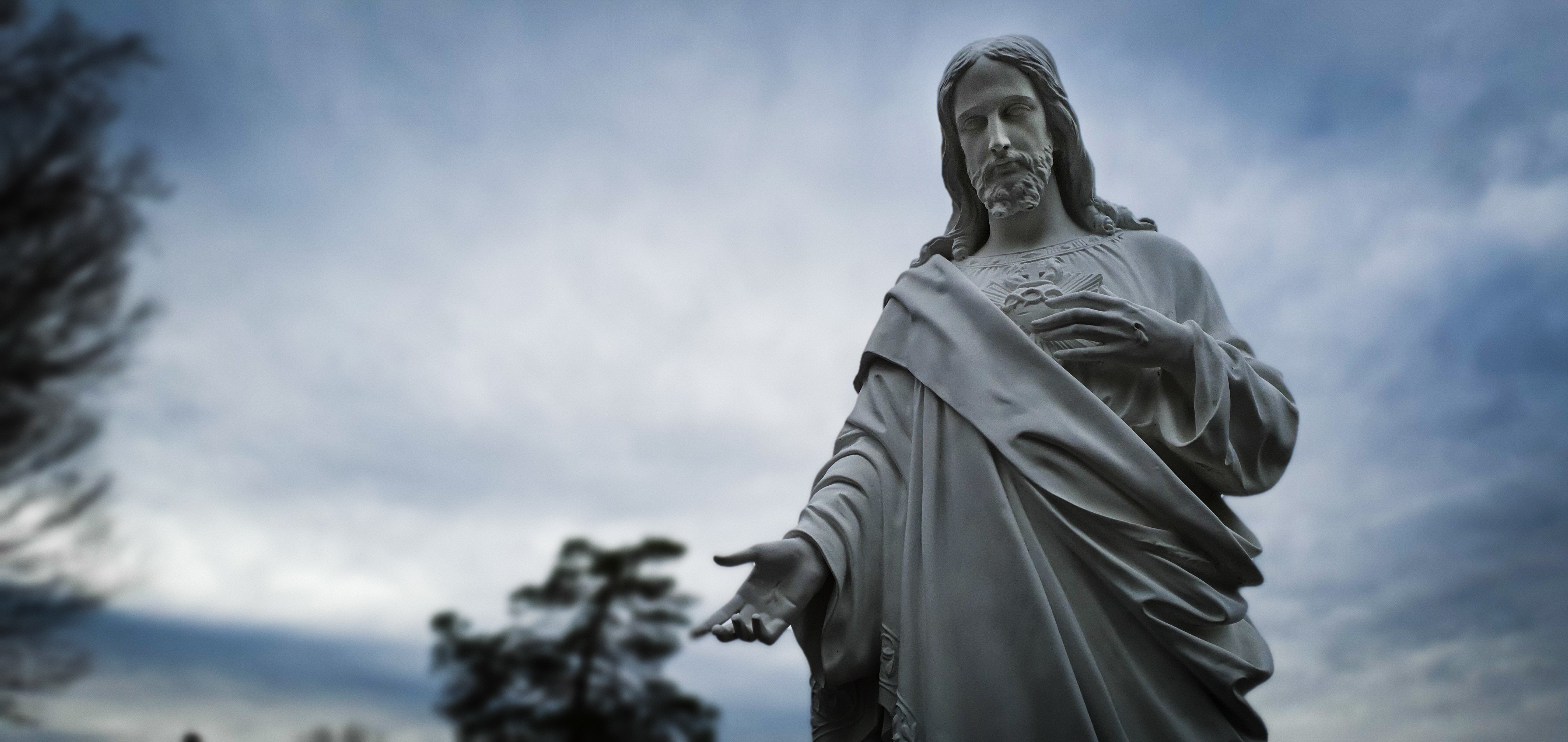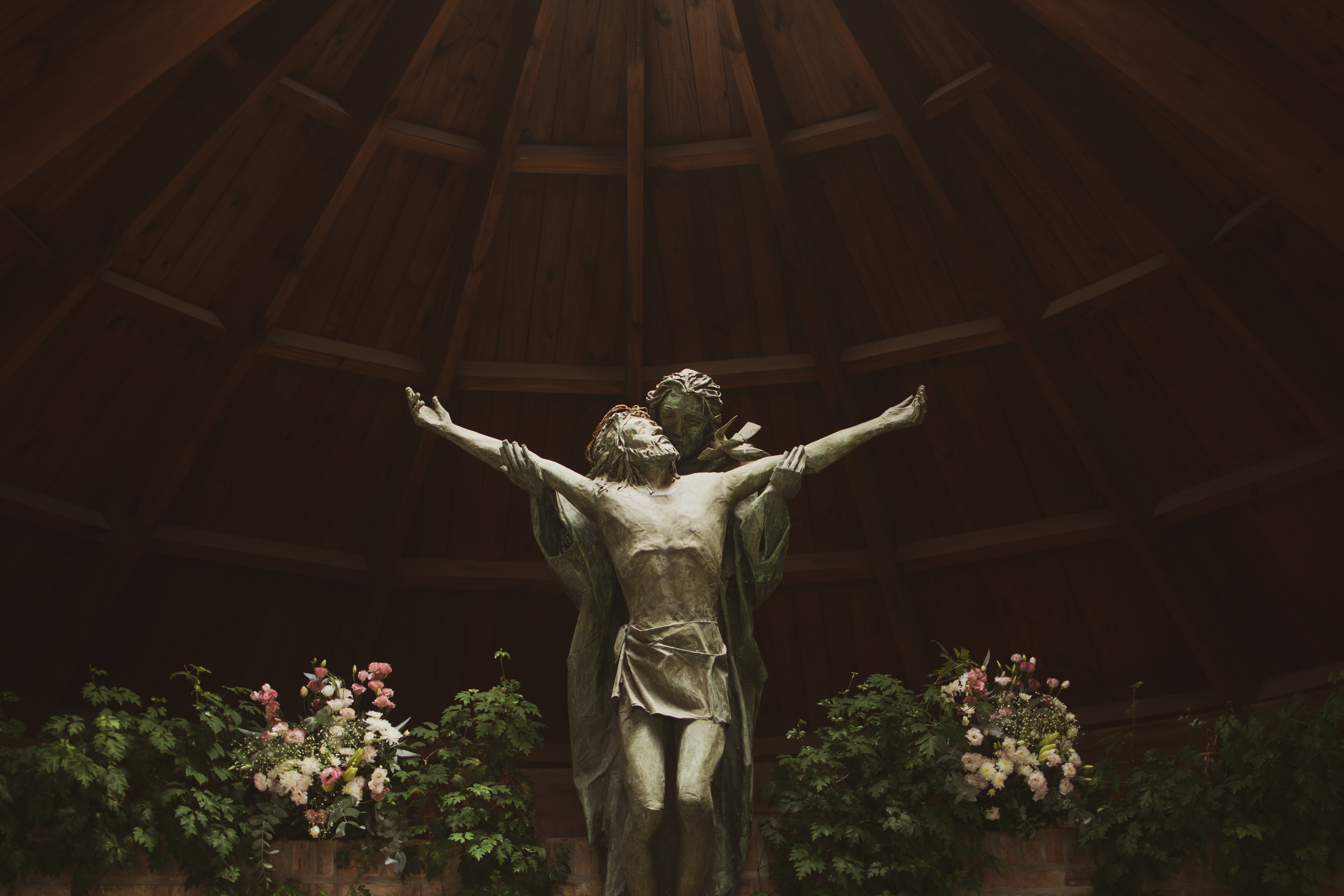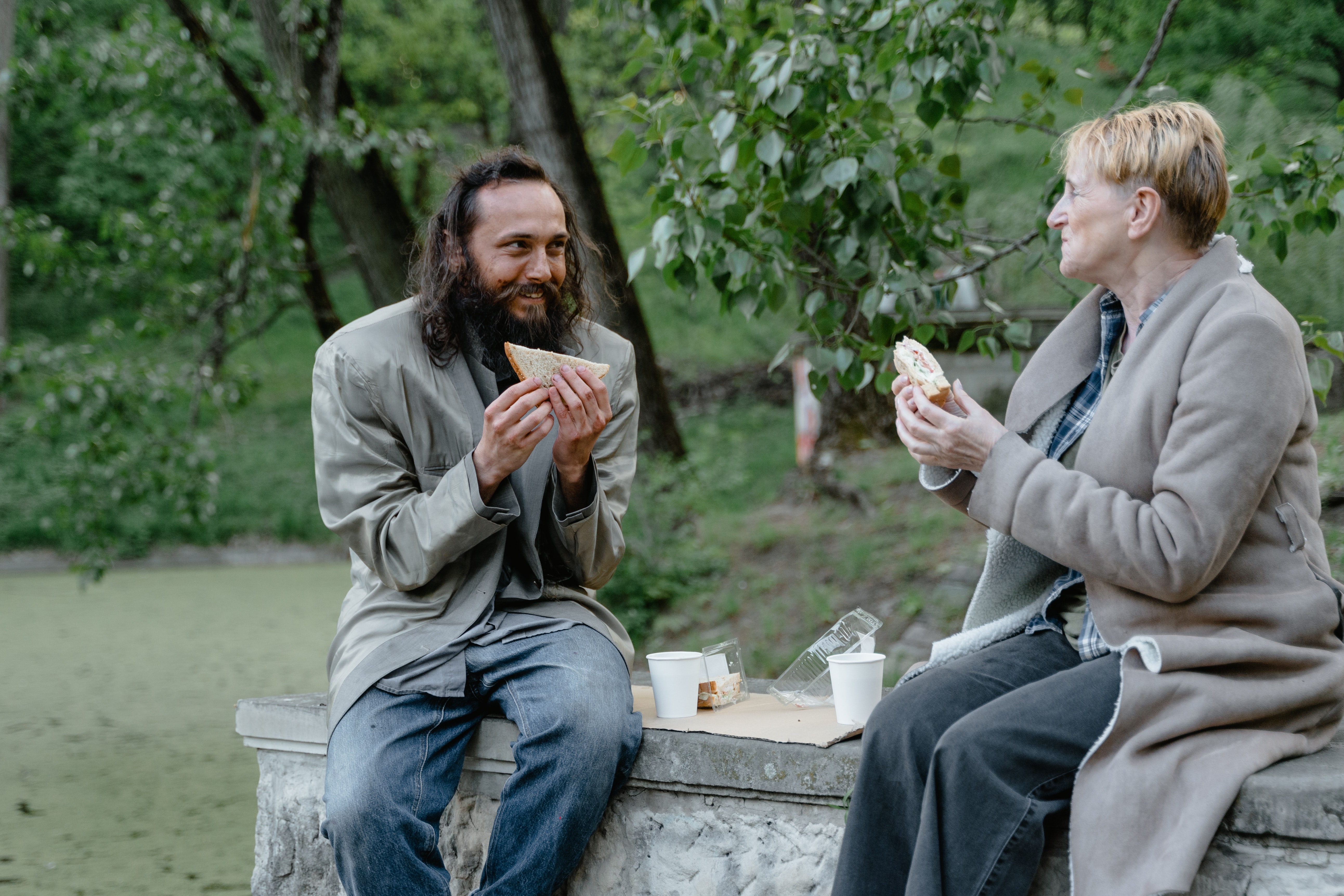Jonah and the Ninevites, Solomon and the Queen of Sheba, Jesus and his people… What’s the connection?
Jonah’s warning to the Gentile Ninevites brought them to repentance and saved them. Solomon’s wisdom attracted the Gentile queen into belief in the one true God. These are two examples of Gentiles being open to the Truth and accepting and embracing it when they heard it.
Jesus’ teaching to the Chosen People, his message of repentance and salvation and his revelation of himself as the Messiah and fulfillment of the Promise, are rejected by many. These, the Chosen, turn away, stuck in their old understanding and the encrustations of rules and erroneous expectations. They have carved their own false image of what it means to be chosen, and what it means to worship, and what it means to obey, forgetting the beating heart of true belonging and worship and obedience. They have twisted the beautiful gift of God into something that serves them, rather than something they are chosen and called to serve in gratitude and love.
Jesus wants them to see where the twists are so that he can make those crooked ways straight. If they refuse to open their eyes, they are in real danger of stepping blindly off the cliff into an everlasting doom. To get their attention, he calls out their hypocrisy: Look, you acknowledge Jonah and Solomon and the great things worked through them; there is something even GREATER at work here! Open your eyes and SEE! Step into the fulfillment!
He is the fulfillment of the Promise in Eden, the fullness of Truth they seek, the Savior they have longed for, the freedom they have begged for, the Wisdom of God, the Savior of the World, the Bread of Life, the Fountain of grace, Light for all, Love and Mercy and Power, the Lamb of Sacrifice, the eternal High Priest, the One Who makes all things new. Something greater, indeed.
Jesus calls to us in the same way, with the same invitation to enter into this New Covenant wholly, so that our eyes and hearts are fully opened to embrace the Fullness that is ever ancient, ever new. To do that, we have to check ourselves for the ways in which we might be stuck, unwilling to hand ourselves over radically to the One Who loves us and leads us in sometimes surprising ways.
If we are grasping unnecessary things, our arms are not free to embrace necessary things.
If our hearts are stuffed with inessentials, God cannot fill us with what is essential (which is Himself, Love).
Lord, free us for You. Open our eyes and our hearts to You fully, and make all things new!
¿Cuál es la conexión entre Jonás y los ninivitas, Salomón y la reina de Saba, Jesús y su pueblo?
La advertencia de Jonás a los gentiles ninivitas los llevó al arrepentimiento y los salvó. La sabiduría de Salomón atrajo a la reina gentil a creer en el único Dios verdadero. Estos son dos ejemplos de gentiles abiertos a la Verdad y aceptándola y abrazándola cuando la escucharon.
La enseñanza de Jesús al Pueblo Elegido, su mensaje de arrepentimiento y salvación y la revelación de sí mismo como Mesías y cumplimiento de la Promesa, son rechazados por muchos. Los Elegidos se alejan, atascados en su antiguo entendimiento y en las incrustaciones de reglas y expectativas erróneas. Han tallado su propia imagen falsa de lo que significa ser elegido, y lo que significa adorar, y lo que significa obedecer, olvidando el corazón palpitante de la verdadera pertenencia, la adoración y la obediencia. Han torcido el hermoso regalo de Dios en algo que les sirve, en lugar de algo que son elegidos y llamados a servir con gratitud y amor.
Jesús quiere que vean dónde están las torsiones para poder enderezar esos caminos torcidos. Si se niegan a abrir los ojos, corren el verdadero peligro de caer ciegamente por el precipicio hacia una perdición eterna. Para llamar su atención, señala su hipocresía: Mira, reconoces a Jonás y Salomón y las grandes cosas obradas a través de ellos; ¡Hay algo aún MÁS GRANDE aquí! ¡Abre tus ojos y MIRA! ¡Entra a la realización completa!
Él es el cumplimiento de la Promesa en el Edén, la plenitud de la Verdad que buscan, el Salvador que han anhelado, la libertad que han suplicado, la Sabiduría de Dios, el Salvador del Mundo, el Pan de Vida, la Fuente de la gracia, la Luz para todos, el Amor y la Misericordia y el Poder, el Cordero del Sacrificio, el eterno Sumo Sacerdote, Aquel que hace nuevas todas las cosas. Obviamente es Algo más grande.
Jesús nos llama del mismo modo, con la misma invitación a entrar íntegramente en esta Nueva Alianza, para que nuestros ojos y corazones se abran plenamente para abrazar la Plenitud que es siempre antigua, siempre nueva. Para hacer eso, tenemos que revisarnos a nosotros mismos para ver como nos atascamos, sin estar dispuestos a entregarnos radicalmente a Aquel que nos ama y nos guía de maneras a veces sorprendentes.
Si estamos agarrando cosas innecesarias, nuestros brazos no están libres para abrazar cosas necesarias.
Si nuestro corazón está lleno de cosas inesenciales, Dios no puede llenarnos con lo esencial (que es Él mismo, el Amor).
Señor, líbranos para Ti. Abre nuestros ojos y nuestros corazones a Ti completamente, y ¡haz nuevas todas las cosas!
 Kathryn Mulderink, MA, is married to Robert, Station Manager for Holy Family Radio. Together they have seven children (including Father Rob), and seven grandchildren. She is President of the local community of Secular Discalced Carmelites and has published five books and many articles. Over the last 30 years, she has worked as a teacher, headmistress, catechist, Pastoral Associate, and DRE, and as a writer and voice talent for Catholic Radio. Currently, she serves the Church by writing and speaking, and by collaborating with various parishes and to lead others to encounter Christ and engage their faith. Her website is www.KathrynTherese.com
Kathryn Mulderink, MA, is married to Robert, Station Manager for Holy Family Radio. Together they have seven children (including Father Rob), and seven grandchildren. She is President of the local community of Secular Discalced Carmelites and has published five books and many articles. Over the last 30 years, she has worked as a teacher, headmistress, catechist, Pastoral Associate, and DRE, and as a writer and voice talent for Catholic Radio. Currently, she serves the Church by writing and speaking, and by collaborating with various parishes and to lead others to encounter Christ and engage their faith. Her website is www.KathrynTherese.com
Feature Image Credit: Wilson Tamayo, cathopic.com/photo/11342-sagrado-corazon


 Allison Gingras (
Allison Gingras ( 
 Susan Ciancio has a BA in psychology and a BA in sociology from the University of Notre Dame, with an MA in liberal studies from Indiana University. For the past 19 years, she has worked as a professional editor and writer, editing both fiction and nonfiction books, magazine articles, blogs, educational lessons, professional materials and website content. Thirteen of those years have been in the pro-life sector. Currently Susan freelances and writes weekly for HLI, edits for American Life League, and is the executive editor of Celebrate Life Magazine. She also serves as executive editor for the Culture of Life Studies Program—an educational nonprofit program for K-12 students. You can reach her at
Susan Ciancio has a BA in psychology and a BA in sociology from the University of Notre Dame, with an MA in liberal studies from Indiana University. For the past 19 years, she has worked as a professional editor and writer, editing both fiction and nonfiction books, magazine articles, blogs, educational lessons, professional materials and website content. Thirteen of those years have been in the pro-life sector. Currently Susan freelances and writes weekly for HLI, edits for American Life League, and is the executive editor of Celebrate Life Magazine. She also serves as executive editor for the Culture of Life Studies Program—an educational nonprofit program for K-12 students. You can reach her at 
 J.M. Pallas has had a lifelong love of Scriptures. When she is not busy with her vocation as a wife and mother to her “1 Samuel 1” son, or her vocation as a public health educator, you may find her at her parish women’s bible study, affectionately known as “The Bible Chicks.”
J.M. Pallas has had a lifelong love of Scriptures. When she is not busy with her vocation as a wife and mother to her “1 Samuel 1” son, or her vocation as a public health educator, you may find her at her parish women’s bible study, affectionately known as “The Bible Chicks.”
 Merridith Frediani loves words and is delighted by good sentences. She also loves Lake Michigan, dahlias, the first sip of hot coffee in the morning, millennials, and playing Sheepshead with her husband and three kids. She writes for Catholic Mom, Diocesan.com, and her local Catholic Herald. Her first book Draw Close to Jesus: A Woman’s Guide to Adoration is available at Our Sunday Visitor and Amazon. You can learn more at
Merridith Frediani loves words and is delighted by good sentences. She also loves Lake Michigan, dahlias, the first sip of hot coffee in the morning, millennials, and playing Sheepshead with her husband and three kids. She writes for Catholic Mom, Diocesan.com, and her local Catholic Herald. Her first book Draw Close to Jesus: A Woman’s Guide to Adoration is available at Our Sunday Visitor and Amazon. You can learn more at 


 Sr. Mary Martha Moss, FSP has had the grace of serving the Lord for over 40 years as a Daughter of St. Paul. Joyfully engaged in the community’s media ministry, she has authored 3 children’s books, presented on various topics for adult faith formation, enjoyed running Online Book Studies, served as a Pauline Book & Media Center manager and continues singing the alto part with the Daughters of St. Paul Concert Choir.
Sr. Mary Martha Moss, FSP has had the grace of serving the Lord for over 40 years as a Daughter of St. Paul. Joyfully engaged in the community’s media ministry, she has authored 3 children’s books, presented on various topics for adult faith formation, enjoyed running Online Book Studies, served as a Pauline Book & Media Center manager and continues singing the alto part with the Daughters of St. Paul Concert Choir.
 Kate Taliaferro is an Air Force wife and mother. She is blessed to be able to homeschool, bake bread and fold endless piles of laundry. When not planning a school day, writing a blog post or cooking pasta, Kate can be found curled up with a book or working with some kind of fiber craft. Kate blogs at
Kate Taliaferro is an Air Force wife and mother. She is blessed to be able to homeschool, bake bread and fold endless piles of laundry. When not planning a school day, writing a blog post or cooking pasta, Kate can be found curled up with a book or working with some kind of fiber craft. Kate blogs at 




